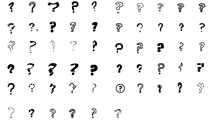25 English Words Borrowed From Other Languages
It doesn’t take long to realize that many words in the English language have been taken from other languages. In fact, the term borrowing is used quite loosely. Just check out this quote from James. D. Nicoll:
“English doesn’t borrow from other languages. English follows other languages down dark alleys, knocks them over and goes through their pockets for loose vocabulary.”
Truth be told, when it comes to language borrowing, English speakers do more than their fair share. It’s not not something that’s solely happened with established language either. We continually deal in loaned words from other languages.
So, how many borrowed words are there? What exactly do we mean by borrowed words? Keep reading to learn more.
Language Borrowing Definition
When words are borrowed from one language and used in another, that’s called lexical borrowing. Some may refer to it as borrowing linguistics. This can happen in a few ways. First, a word may be used ‘as is’. That means it doesn’t undergo any changes or translation. There is no need of the best translation agencies, it’s simply used as is in both languages.
There’s also the concept of loan translation. It’s a bit complex to define loan translation. In these cases, the word is translated, but used literally. These are also known as a calque. For example, the English phrase ‘Adam’s Apple’, calques the French term ‘Pomme d’Adam’. We’ll include some more calques below in our borrowed words examples. In case you need a translation to be done, use a reliable French translation service with professionals who know lexical borrowing and other language peculiarities.
Read also: Vietnamese translation service with experienced translators who are flawless in linguistics.
Why do Borrowed Words Happen?
Now that we’ve clearly outlined a borrowed words definition, the next question to answer is why! Borrowing happens when groups of people speaking two different languages come into contact with one another. In rare cases, words are borrowed equally. This means both cultures share and borrow at nearly the same rate. However, that’s actually fairly rare. In most cases, there is a bit of an imbalance. Sometimes this is due to one culture being dominant or simply larger.
Quite often, when borrowed words are introduced into a language that is done by people who speak both the original and target language fairly well. They may adopt some words or phrases from one language to use in another. They may do this because they simply find the language attractive. In other cases, their simply isn’t an adequate word in their native language.
Take the phrase quinceanera for example. While someone could use the term 15th birthday party, it’s not really accurate. It doesn’t adequately describe the preparations, celebration, or meaning of this Hispanic celebration. So, it only makes sense that someone describing this event would borrow the Spanish term rather than using a translation.
Useful information: Why you should order medical translation service from experts in the industry?
As one might imagine, heavy borrowing often happens during time of great cultural contact. For example, periods of migration often result in borrowed language. War also has an impact. In fact, if you look at the history of the English language, you can get some clues about the history of each time period.
For example, the word kamikaze was the Japanese word for fighter pilots who deliberately crashed their plans in order to cause significant damages to US ships and other holdings. The word has since been adopted into the English language to refer to someone who is on a literal or figurative death mission.
Read also: Find the best developers and translators at a trusted game localization agency.
Now Some Examples
Check out these 25 words that were borrowed from other languages.
-
Loot
-
Safari
-
Cartoon
-
Cookie
-
Metropolis
-
Avatar
-
Entrepreneur
-
Anonymous
-
Guru
-
Cigar
-
Wanderlust
-
Karaoke
-
Lemon
-
Ketchup
-
Utensil
-
Croissant
-
Ballet
-
Delicatessen
-
Kindergarten
-
Rucksack
-
Chocolate
-
Dim Sum
-
Moped
-
Typhoon
-
Plaza
Read also: The value of spoken vs. the written word.
Final Thoughts
Can you guess the origins of each of these words? We think some of them are pretty easy, but there are definitely some tricky words. Did you know the word ketchup originates in Chinese? It’s true! Although the sauce it describes is made of fish sauce and other ingredients. That doesn’t sound much like the stuff Americans squirt onto french fries.
Useful information: Experts at Japanese translation services know all the peculiarities of the language.
























